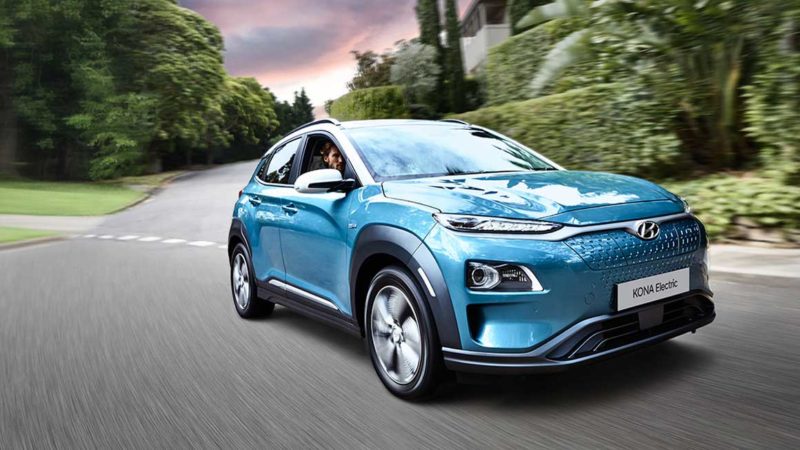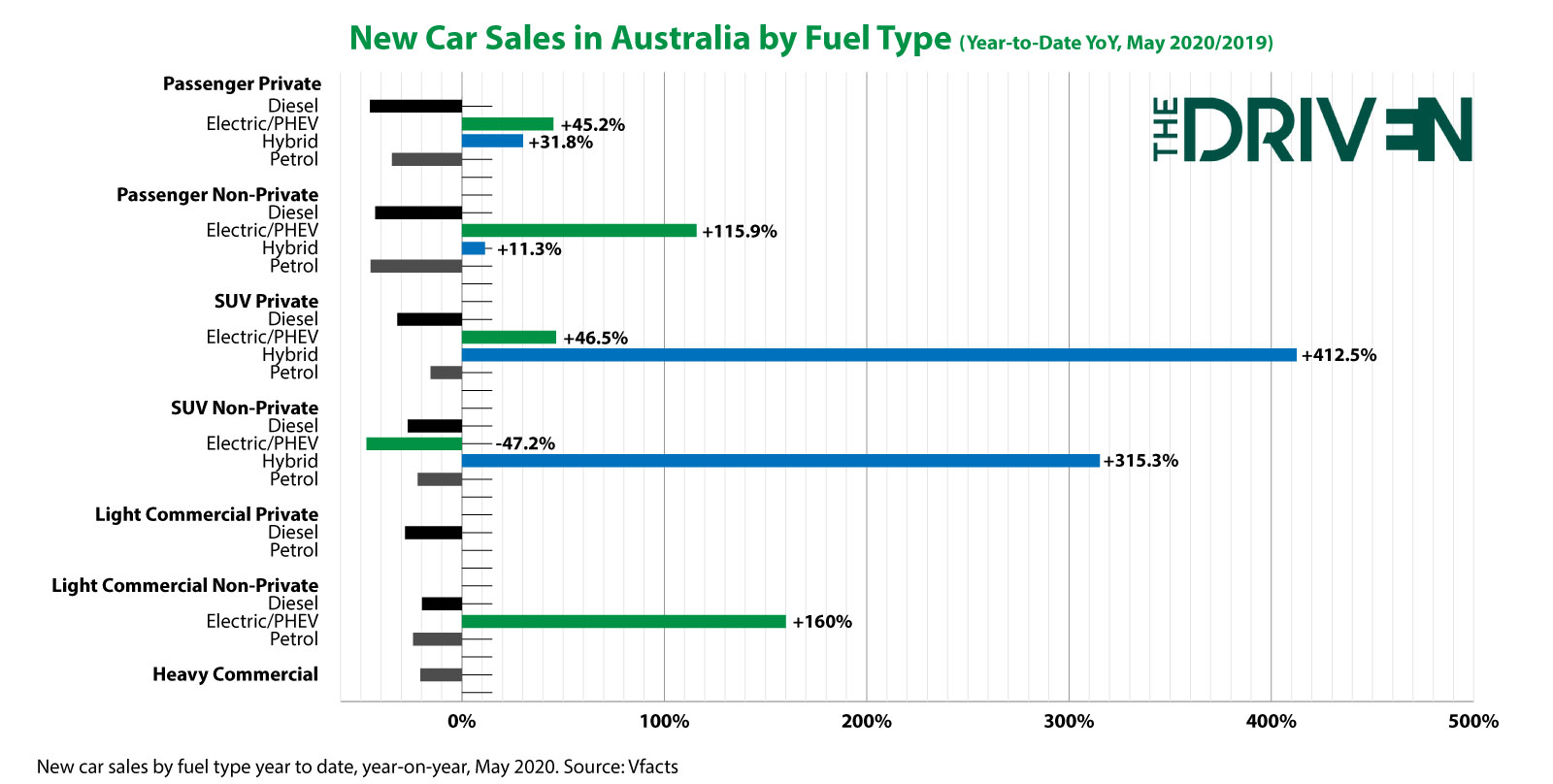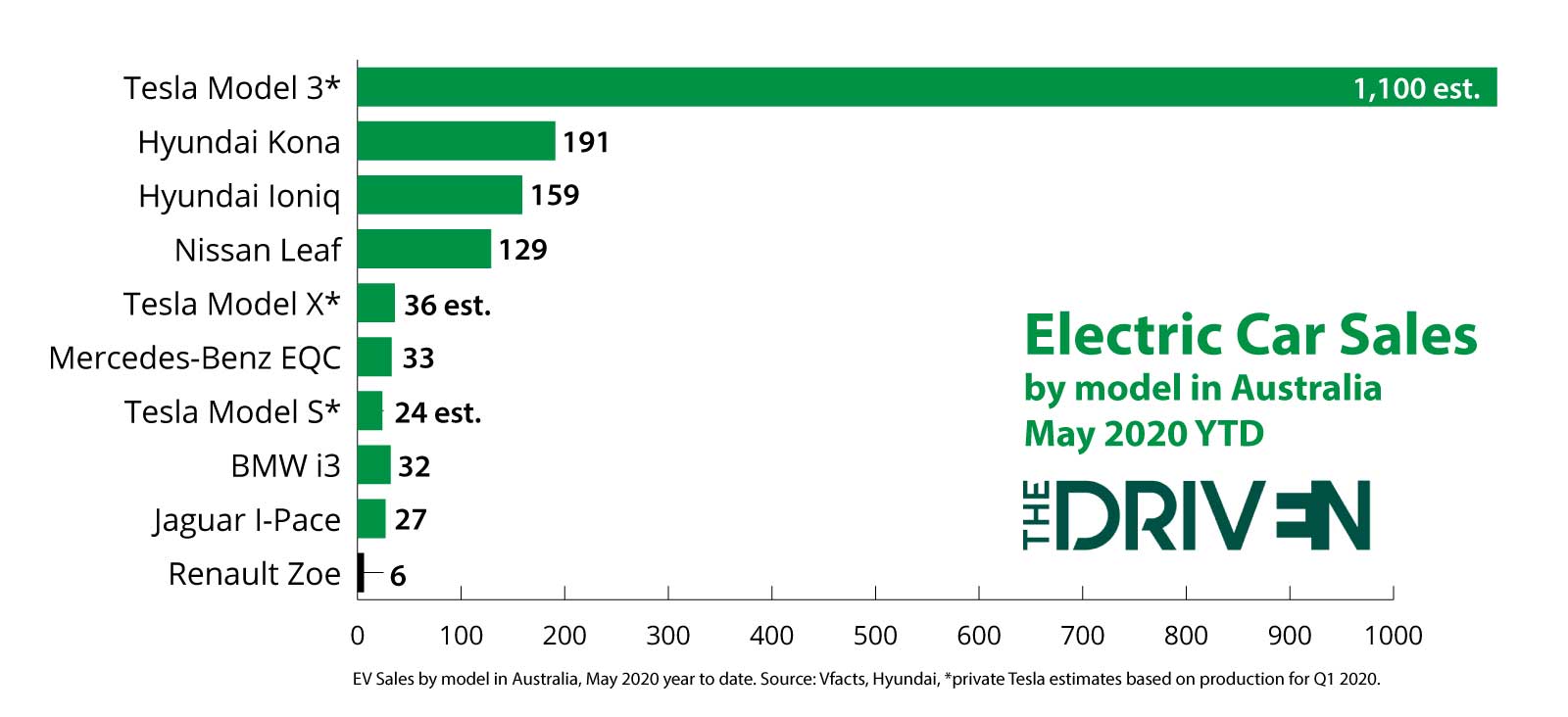The Australian auto market has suffered its greatest dip in sales in at least 30 years as it takes a major hit from dealer closures due to the Covid-19 pandemic.
Sales across all segments and were down by 35% compared to April sales figures, and more than 50 per cent in the passenger vehicle segment, over and above the falls which had plagued the industry over the previous two years.
But as sales of petrol and diesel vehicles continued to plunge, sales of full electric, plug-in hybrid and hybrid vehicles, all jumped significantly, albeit off a low base – suggesting that a fundamental change may be occurring in the Australian vehicle market.
The sales data was recroded by Vfacts, on behalf of the Federal Chamber of Automotive Industries (FCAI). And, once again, the steady rise in EV sales, and the surging interest from prospective buyers, was ignored by the industry.
“May 2020 is the 26th consecutive month of negative growth for the market, and the causative factors are well documented – droughts, floods, bushfires, tight lending conditions, unfavourable exchange rates, and political uncertainty,” said FCAI chief Tony Weber in a statement.
“Now, we add to that the devastating effect of the COVID-19 pandemic over the past three months.
“While COVID-19 is primarily a health crisis, it has brought about an economic crisis as well. These are difficult times for the global and domestic economy, and this of course has repercussions for the local sales sector, including the automotive industry.”
What Weber did not mention is that while the petrol and diesel market fell 36.6% from April to May, the combined sales of electric, PHEV and hybrid cars rose 127.3%.
It’s clear that electrified vehicles in Australia are now becoming increasingly popular, albeit from a relatively low base.
Compared to the same month in 2019, sales of all electrified vehicles combined almost doubled from around 11,000 units year-to-date in May 2019 to 20,000 units in May 2020.
While sales numbers for plug-in electric vehicles were up a very modest 6% year-to-date from 2019, month-on-month saw a 28.5% increase, bringing year-to-date sales figures to 1,142 units (it is important to note that this date excludes Tesla, which sold an estimated 1,160 vehicle sales in the year to date).
Australian plug-in electric and hybrid sales are even defying global trends – as The Driven reported on Wednesday, in April global EV sales suffered a 30% drop in sales during the pandemic but not quite so much as the broader market drop of 45%.
Across segments, hybrid SUVs continued to show the most tenacity, no doubt because of cheaper pricing compared to the plug-in electric models but also due to greater model availability.
Even the more expensive electric and PHEV models saw an increase.
Model-wise, new all-electric vehicle sales continued to creep up.
Although Tesla is alone in not reporting local sales figures to the FCAI, it is understood there have been no Tesla vehicles shipped to Australia since February due to the pandemic.
Nevertheless, Tesla’s “mass-market” Model 3 electric sedan remains well in front of other models, which amount to a little more than 600 models combined so far for 2020.
Notably, the Mercedes-Benz EQC has now gained sixth place in the leaderboard with 33 sales year-to-date, overtaking the Tesla Model S which still sits at an estimated 24 units sold for 2020.
Tesla’s Fremont factory is now back producing electric cars, although what the near future holds for shipping to Australia remains to be seen.
As we rapidly approach the halfway mark of 2020, it is not clear yet whether the Covid-19 may also take its toll on Australian electric sales, no matter how well they defy cross-market trends.
For all of 2019, electric vehicle sales tripled from 2018 to 6,718 units sold according to the Electric Vehicle Council, and with just under a month left until July sales sit at approximately 1,000 less than half of 2019’s sales figures.
While 2019 was undoubtedly fed by appetite and reservations for the Tesla Model 3, 2020 faces economic recession.
RenewEconomy and its sister sites One Step Off The Grid and The Driven will continue to publish throughout the Covid-19 crisis, posting good news about technology and project development, and holding government, regulators and business to account. But as the conference market evaporates, and some advertisers pull in their budgets, readers can help by making a voluntary donation here to help ensure we can continue to offer the service free of charge and to as wide an audience as possible. Thankyou for your support.

Bridie Schmidt is associate editor for The Driven, sister site of Renew Economy. She has been writing about electric vehicles since 2018, and has a keen interest in the role that zero-emissions transport has to play in sustainability. She has participated in podcasts such as Download This Show with Marc Fennell and Shirtloads of Science with Karl Kruszelnicki and is co-organiser of the Northern Rivers Electric Vehicle Forum. Bridie also owns a Tesla Model Y and has it available for hire on evee.com.au.



